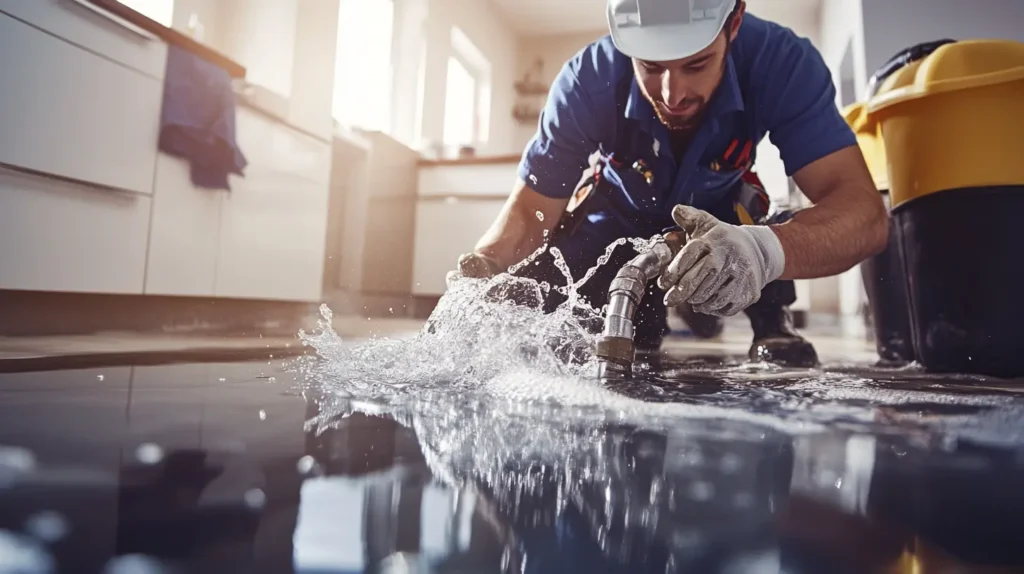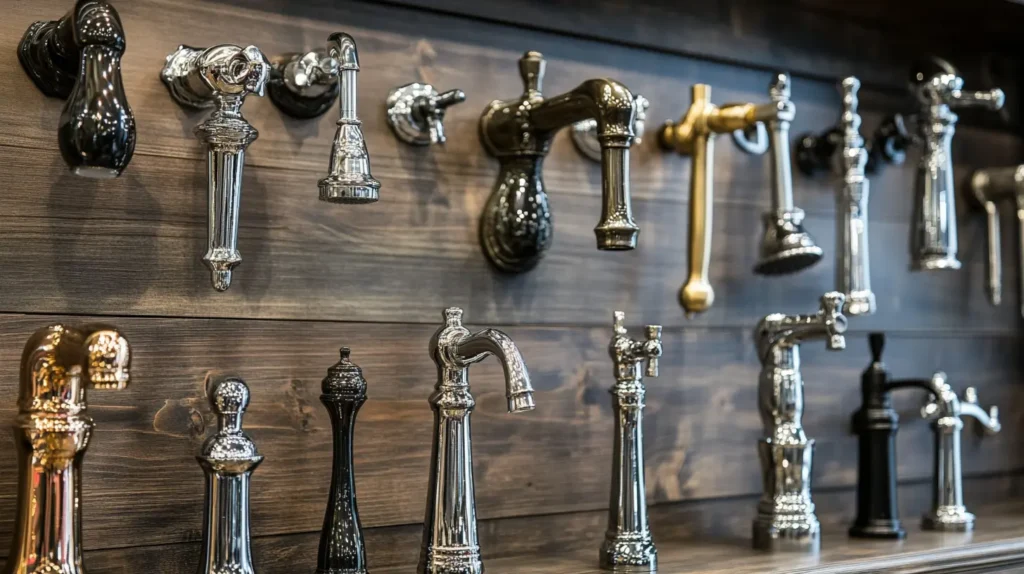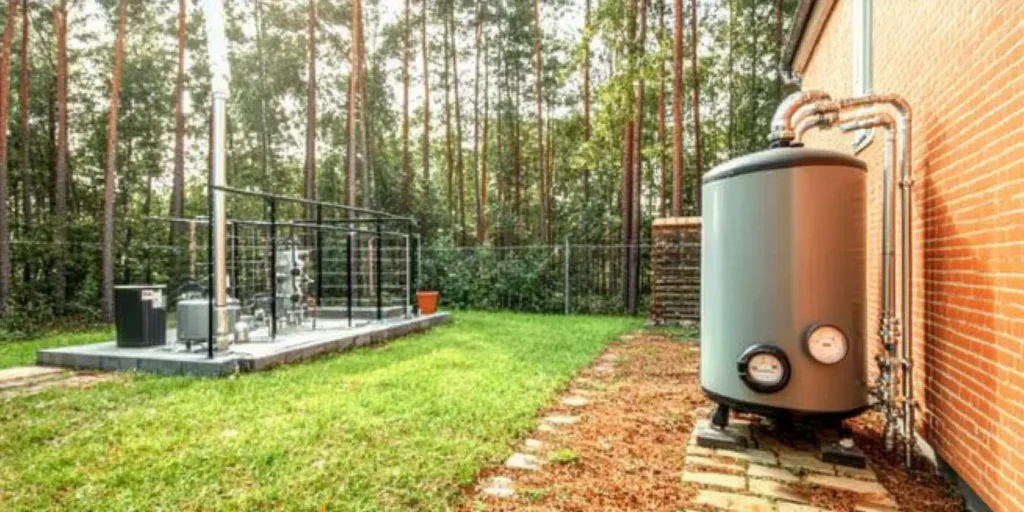Picture this: you’re enjoying a quiet evening in your Northeast Florida home, when suddenly your peace is interrupted by an odd symphony of knocks, bangs, and hisses from behind the walls. At Kingdom Based Plumbing, we understand how these unexpected noises can turn your serene space into a scene of mystery. That’s why we’re here to help you troubleshoot these sounds with a clear guide on identifying causes and applying practical solutions to ensure your home remains a peaceful sanctuary. So what Causes Plumbing Noises?
1. Plumbing Noise in Walls: The Mysterious Knocking
Imagine a typical morning in your Northeast Florida home. You turn off your shower, and suddenly, a startling knocking sound echoes through your walls. This common household noise, known as ‘water hammer’, can be both alarming and unnerving. But what exactly causes this peculiar sound?
Water hammer occurs when the flow of water moving at high velocity through the pipes is abruptly stopped, such as when a faucet or valve is quickly closed. The sudden halt generates a shockwave that reverberates through the plumbing system, akin to a train hurtling at full speed towards a stop but finding a barrier in its path. The momentum of the water has to dissipate somehow, and in the confined space of a pipe, it results in a loud knocking or banging sound.
The Physics Behind Water Hammer
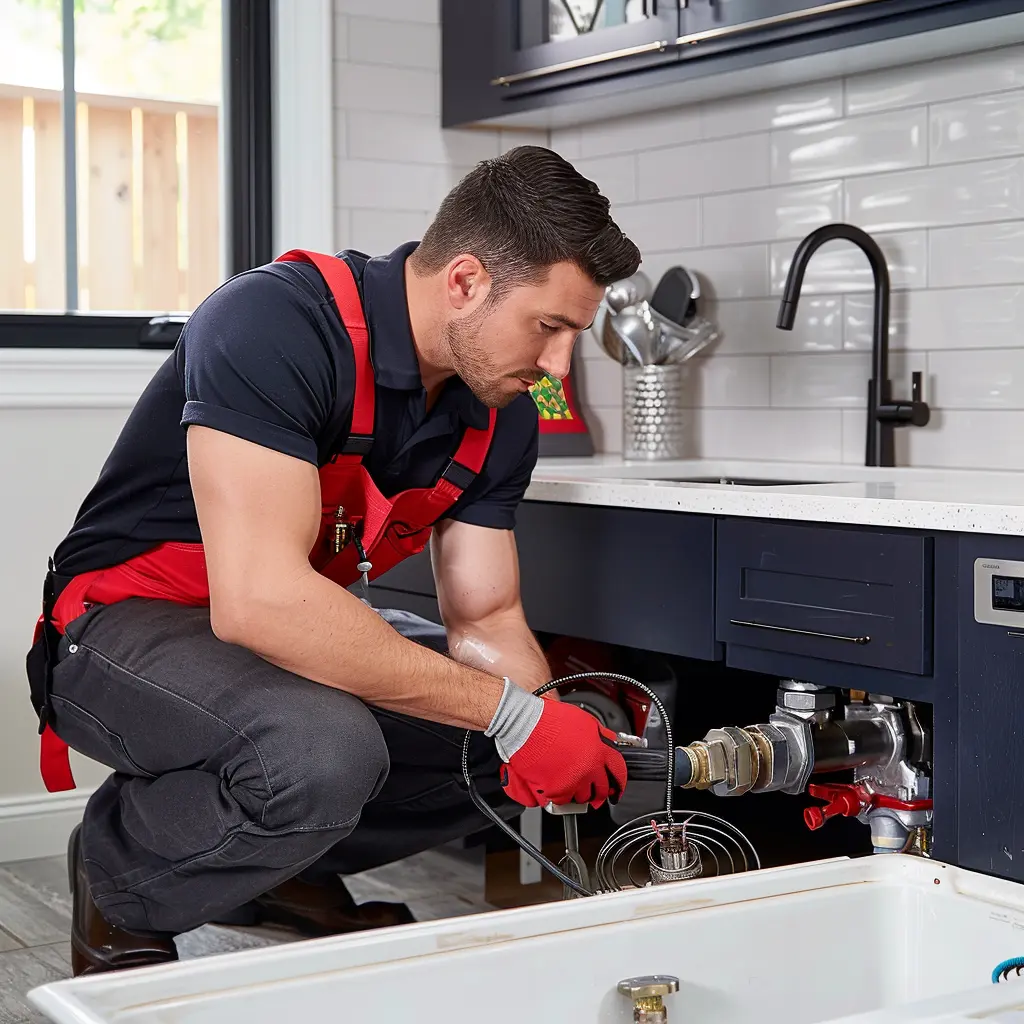
To delve deeper, the science of water hammer involves the principles of hydraulics and dynamics. When water is in motion, it possesses kinetic energy due to its velocity. Closing a valve suddenly blocks the flow, causing a rapid increase in pressure as the kinetic energy is converted into pressure energy. This spike in pressure travels through the plumbing, creating shock waves that manifest as the knocking sound you hear.
This phenomenon is not merely a nuisance but can also be potentially harmful to your plumbing infrastructure. The force generated by these shockwaves can strain pipe connections and joints, leading to leaks or even catastrophic pipe failures if not addressed.
Diagnosing Water Hammer
Identifying a water hammer involves listening for its distinctive sound, typically occurring right after shutting off a water fixture. It’s most noticeable where the plumbing system includes appliances and fixtures that stop water flow abruptly, such as washing machines, dishwashers, and modern faucets with quick-closing valves.
Long-Term Solutions for Water Hammer
The most effective way to address water hammer is by installing air chambers or water hammer arrestors. These devices are specifically designed to absorb the shockwave generated by the sudden stopping of water flow.
Air Chambers: An air chamber is a vertical pipe located near faucets or valves that acts as a cushion. The chamber traps air, and when a shockwave hits, the air compresses to absorb the shock, reducing the impact on the pipes.
Water Hammer Arrestors: These are more sophisticated than air chambers and can be installed on any part of the plumbing system. They work on a similar principle but are often more effective at dissipating energy, especially in complex plumbing systems or where retrofitting air chambers is impractical.
Implementing the Solutions
Installing these devices typically involves strategic placement in high-risk areas, such as near quick-closing valves in your home’s plumbing system. For homes in Jacksonville, St. Augustine, and surrounding areas, considering the layout and age of the plumbing system is crucial when planning the installation of these solutions.
By understanding and addressing the causes of water hammer with proper mitigation techniques, homeowners can prevent potential damage and extend the lifespan of their plumbing systems. Not only does this enhance home safety, but it also contributes to the overall tranquility of your living environment.
2. Hissing Sounds: High Pressure Whispers
In the serene environments of Northeast Florida homes, a hissing sound emanating from the plumbing can disrupt the peace and hint at underlying issues within the water system. This high-pitched noise, commonly described as a ‘hiss’, typically indicates excessive water pressure in your pipes. High water pressure, while ensuring a vigorous shower and efficient flushing, can, paradoxically, lead to several problems including noise pollution, accelerated wear and tear on plumbing fixtures, and even the risk of leaks or bursts.
The Dynamics of High Water Pressure
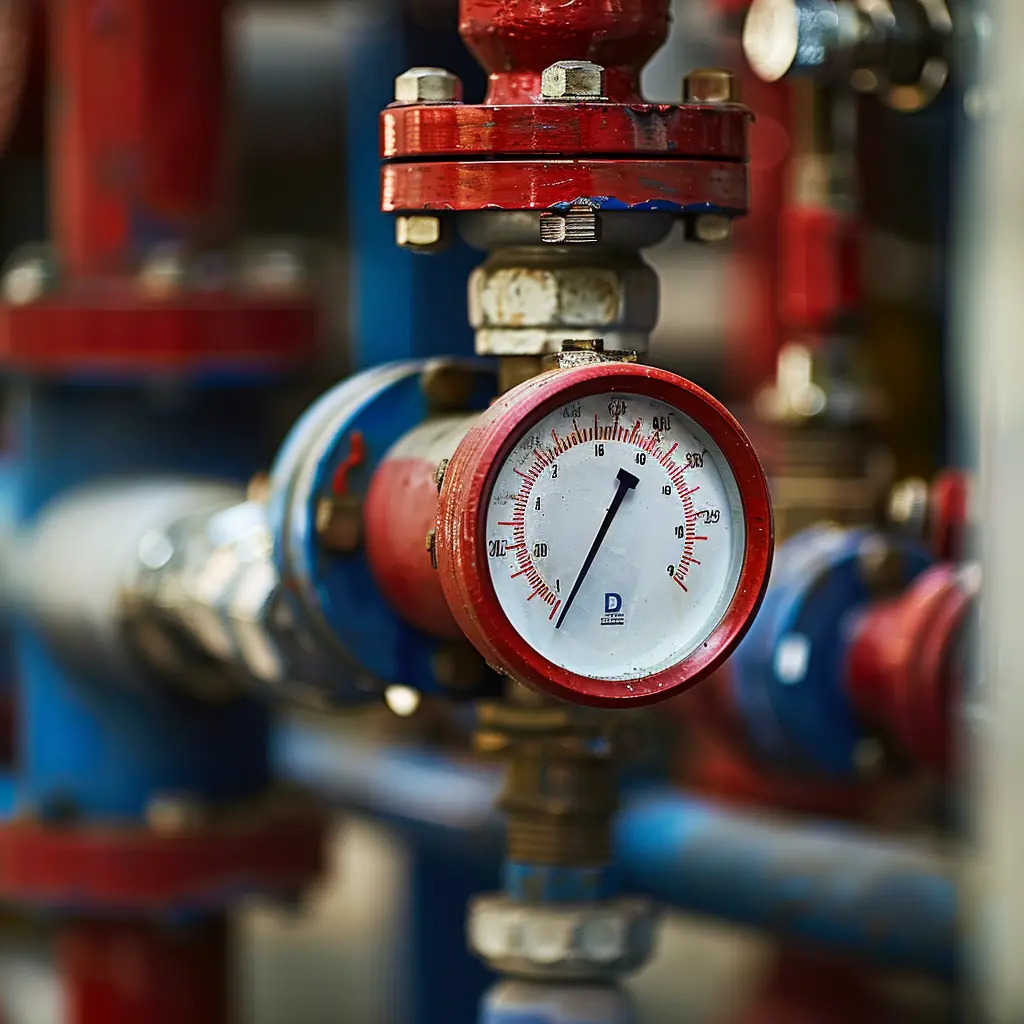
Water pressure in residential plumbing is ideally meant to balance efficiency and safety. The standard pressure for a home should range between 40 and 60 pounds per square inch (psi). However, when the pressure exceeds this range, it can cause the water to flow through pipes with too much force. This not only produces the characteristic hissing sound but also strains every connection, seal, and valve in your system.
The source of high water pressure can often be traced to the municipal water supply, which might pump water at a higher pressure to service fire hydrants or high-rise buildings. Alternatively, it might be due to thermal expansion in your home water system, especially if it’s equipped with a one-way valve such as a check valve or pressure-reducing valve that doesn’t allow pressure to flow back into the main city system.
Diagnosing High Water Pressure
Identifying whether your home suffers from high water pressure involves using a pressure gauge. This simple device can be attached to a spigot or tap within the home. Readings consistently above 60 psi, especially at times when water use is low, confirm that the pressure settings are too high.
Long-Term Solutions to Manage Water Pressure
Installing a Pressure Regulator: The most reliable solution for high water pressure is the installation of a pressure regulator. This device, which is installed at the point where the main water line enters the home, reduces the pressure of incoming water from the municipal supply to a safer, more manageable level. A properly adjusted pressure regulator not only curtails the hissing sound but also prolongs the life of your plumbing by reducing stress on pipes and fixtures.
Routine Monitoring and Maintenance: Homeowners should periodically check their water pressure with a gauge. Pressure regulators may also need adjustments or replacements over time to maintain optimal performance.
The Benefits of Correcting High Water Pressure
Reducing water pressure not only resolves the annoying hissing sounds but also decreases the risk of water leaks, dripping faucets, and running toilets. It leads to reduced water waste, which is not only good for the environment but also for your utility bills. Moreover, it extends the durability of appliances that use water, such as dishwashers, washing machines, and water heaters.
3. Gurgling Drains: The Troubled Waters
Gurgling sounds emanating from your drains are not just a minor annoyance but a symptom of underlying plumbing issues that, if neglected, can lead to more serious problems. Typically, these noises occur when there is a blockage or issue within the vent pipes or the drainage system itself is poorly designed or installed. The sound is reminiscent of trying to suck liquid through a straw that is pinched or partially covered—both inefficient and noisy.
The Role of Vent Pipes in Your Plumbing System
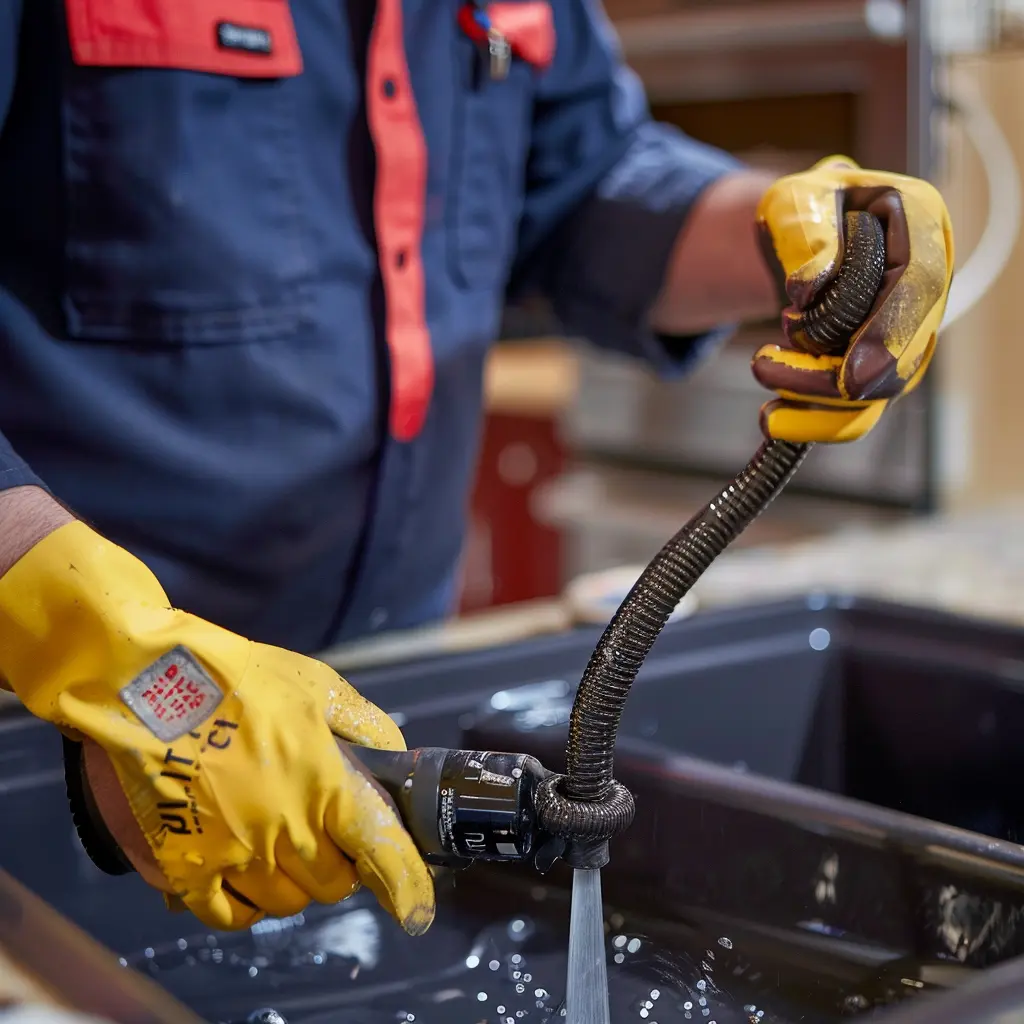
Vent pipes, an essential component of any residential plumbing system, are designed to regulate the air pressure within your plumbing system and help wastewater flow smoothly and silently. They extend from your drainage pipes to the roof of your home, allowing fresh air to enter the plumbing system, which helps to push waste and water down the drain more effectively. When these vents are blocked, air pressure within the pipes can become unbalanced, leading to the characteristic gurgling noises as air is pulled through the water in your traps.
Common Causes of Gurgling Drains
Blocked Vent Pipes: Leaves, debris, and even bird nests can block vent pipes, especially those that are not covered or are easily accessible from the outside.
Improper Installation: Incorrectly installed or inadequate venting in your home’s plumbing can cause negative air pressure buildup in the pipes, leading to gurgling sounds.
Drain Blockages: Clogs in your drain lines can also cause gurgling sounds. These blockages prevent air from escaping normally through the vents, forcing it to move through the water in your drain trap.
Diagnosing and Solving Gurgling Drain Issues
Step 1: Inspecting Vent Pipes
Begin by inspecting your home’s roof where the vent pipes exit. Look for any obvious blockages that can be safely removed. This might involve clearing out leaves, debris, or nests.
Step 2: Assessing Drain Ventilation
Check the installation and configuration of your plumbing vents. In older homes or those that have undergone DIY renovations, venting issues are common. Consulting with a professional plumber can provide insights into potential redesigns or modifications needed to ensure proper ventilation.
Step 3: Clearing Drain Blockages
Utilize a plumber’s snake or a hydro jetting service to clear away any blockages within the pipes. This step not only helps eliminate gurgling sounds but also improves the overall flow and function of your drainage system.
Step 4: Regular Maintenance
Regular maintenance, including routine checks of vent pipes and drains, can prevent future occurrences of gurgling sounds. This proactive approach not only keeps your plumbing system healthy but also contributes to a quieter home environment.
The Benefits of Addressing Gurgling Sounds
Resolving issues related to gurgling drains enhances the efficiency of your plumbing system, extends its lifespan, and maintains the sanitary conditions of your home. More importantly, it restores peace and tranquility to your living environment, ensuring that your home remains a calm sanctuary free from the disruptive noises of troubled waters.
How-To Guide for Troubleshooting Plumbing Noise
Step 1: Locate the Noise
Begin by identifying where the noise originates. Is it coming from a particular bathroom, the kitchen, or throughout the house? Use this information to narrow down the potential causes.
Step 2: Inspect and Diagnose
Inspect visible pipes for any signs of damage or loose fittings. Listen to the walls with a stethoscope or a glass to your ear to pinpoint the exact location of the noise. This diagnostic step is crucial in determining the appropriate solution.
Step 3: Implement Solutions
Based on your diagnosis:
Install a water hammer arrestor for knocking sounds. Adjust or install a pressure regulator for hissing noises. Clean out vent pipes or reconfigure drainage for gurgling sounds.
Step 4: Regular Maintenance
Schedule regular inspections and maintenance with professionals like Kingdom Based Plumbing to prevent future issues. This includes checking for leaks, ensuring vents are clear, and monitoring water pressure.
Case Study: Silence in St. John’s County
In a recent case, a family in St. John’s County was troubled by persistent knocking sounds every time they shut off their shower. Our team diagnosed the issue as water hammer. We installed an arrestor that immediately resolved the problem, restoring peace and extending the lifespan of their plumbing system.
Conclusion
Understanding and addressing the sources of plumbing noises not only brings peace back to your home but also contributes to the longevity and efficiency of your plumbing system. Remember, tackling these issues early can prevent more serious problems down the road.
Frequently Asked Questions
Why does my plumbing make noise?
Noises in plumbing are caused by issues like water hammer, high water pressure, and blocked vents, each leading to different types of sounds such as banging, hissing, or gurgling.
How to stop plumbing pipes from making noise?
To stop noises, consider installing water hammer arrestors, adjusting water pressure with regulators, securing loose pipes, and ensuring proper venting.
What makes plumbing pipes make noise?
Noise can stem from mechanical stresses such as sudden stops in water flow, pressure imbalances, and blockages in vents or pipes.
Why do my plumbing pipes make noise?
Plumbing pipes make noise due to conditions that create turbulence or stress in the system, such as high water pressure or poorly secured pipes.
Why do plumbing pipes make noise?
Pipes may produce noises when there are issues like water hammer, high water pressure, or blocked vents, which can be addressed with appropriate plumbing solutions.
At Kingdom Based Plumbing, we’re dedicated to helping you maintain a quiet and functional home. We have the solution to all sorts of plumbing noises troubling you. Contact us today for more information or to schedule a service visit.

